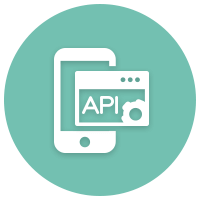Think you’re the only one crushing candy on your phone all day? Look up between levels and you’ll see you’re not alone. Mobile application usage has skyrocketed, with users last year spending 117% more time on their mobile devices than the previous year.
With mobile applications playing such a huge part of everyone’s lives, your business needs mobility not just to survive but thrive. Whether you own a single-unit urban restaurant concept or an international chain of a thousand units, there are countless ways mobile applications can drive traffic to your business.
As plentiful as they might be, though, mobile applications don’t just grow on trees. As an entrepreneur, you have to understand the true mobile app development cost so that you can get your budgeting right. For that, you need to understand how different components drive the costs of developing a mobile app.
Largely, there are 5 major costs that you need to budget for in order to cover all your bases throughout your mobile app journey.
1. Mobile app development costs

There is no easy answer to the most common question developers hear from their clients: “How much does it cost to develop a mobile app?”
There are a number of factors that determine your total mobile app development cost, but experienced mobile developers are able to take intended feature lists and provide their clients with a range that usually covers the magic number the clients are looking for.
So what are the basic cost drivers in the mobile app development phase? Let’s consider the fact that back end operations form a rather large portion of the whole app making process. Some of the drivers of mobile app development costs can be:
- General mobile app features
- App infrastructure
- Controls and user Interface of the mobile app
- Data storage
- 3rd party software integration
- Access to enterprise data
- Data encryption
- Scalability
- Administrative tasks (planning, administration, testing, deployment)
2. Ongoing mobile app maintenance costs

The mobile appl development costs don’t end with the creation of the application. While you may have won the battle creating the “perfect” application for your business, the ongoing war of maintaining it has just begun.
Long term application maintenance is guided by the principle of making the software sensible, user friendly, smooth functioning and feature-rich without bloating it with extra bells and whistles. As the owner of the project, you should work with your team to take into account budgeting for major updates, technological advancements, software and hardware upgrades, addressing new threats and risks, making improvements and creating bug fixes as issues arise during the lifespan of the app.
You may think to yourself that if you create the perfect application from the onset, you won’t need to worry about ongoing maintenance. However, this attitude is generally what results in failure for many entrepreneurs.
While this is an interesting point to give a thought to, “a perfect, bullet-proof mobile application” philosophy at the very start is nothing but a misnomer, especially when you are still not sure what your users demand from your tech solution. All you may be doing is overspending on your initial cost and thus, it is wiser to let user feedback dictate any changes and/or fixes thereof.
This research piece from Comentum gives you a ball park estimate of how much you can expect to spend on your mobile app development and maintenance journey.
3. App hosting costs

Hosting is one of the most important investments you as an entrepreneur can make in your project. Choosing the right app hosting services or cloud service provider ensures an amazing end user experience.
Proper investment at the early stages in the hosting of your mobile app facilitates 24×7 seamless functioning while delivering a stable and fast loading environment to the end user. There are a number of cost drivers associated with mobile app hosting:
- Volume of requests the app receives
- Web traffic
- Added data-consuming features
- Database hosting
- Memory optimization
- Security protection against external threats
While you might be able to cut costs in other phases of your mobile app development journey, hosting and the associated costs should never be compromised with. Proper hosting and the supporting services future proof your mobile app against the competition or at least allows your app to operate on an equal playing field:
Getting the right hosting provider:
- Makes your apps run quicker and smoother,
- Makes them scalable for every end device,
- Makes it suitable for every client type,
- Makes it possible to access user information on the go and
- Backs it up with high performance API infrastructure
4. Cost of external APIs

Interactivity between applications is essential to the user experience, which means you have to include features that allow your mobile app to chit-chat with other apps and software programs. This is accomplished through an external Application Programming Interface, or an API.
Implemented correctly, the API functions independently of the user and in the background, making the interactivity between mobile applications on a user’s device seamless and unobtrusive to the user experience.
Twilio is a great example of a paid external API service. It allows designers to integrate a pre-built API functionality into their software platforms. With a service like Twilio, a mobile app can make phone calls/VoIP calls or send text messages to any mobile device on a pay-as-you-go billing model.
Using relevant 3rd party APIs allow you to save time, money and resources at the mobile app development stage. Instead of forcing your team to code an application from scratch that does everything, 3rd party APIs let you focus on the business itself and integrate only the most relevant features into your MVP.
This also relieves your mobile app of managing a great deal of administrative grunt work, since 3rd party APIs can manage emailing, billing, tracking, texting, retrieving information and all such functions that divert your app from its core activities. You can contract out certain responsibilities to a remote software that does it for you and in a better way.
Considering the importance, reach, functionality and applicability that external APIs bring about in your mobile app, there is a lot that can be achieved here. Plus, this too poses a rather substantial cost to be reckoned with when seen on a recurring basis.
5. Data security costs

Finally, and perhaps most important to the fidelity of the entire project, is the issue of data security. Security is nothing to be taken lightly – if your mobile app is “market ready” but you haven’t addressed security issues, don’t rush your product to the market.
There are many steps that must be taken to ensure the safety of user passwords, stored client information and data associated with mobile app use, and other aspects tied to protecting your users. And while this might make the entrepreneur in you cringe, you have to understand at this early stage: there will be significant expenses in securing your mobile app.
You’ll be cringing more if you fail to implement adequate security into your mobile app, as data shows the potential costs of a major security breach, file corruption from attacks on the system, viral infection, malware, and other security issues would be much more damaging to your purse strings than the costs of a carefully woven security strategy. It’s vital from the beginning of development that you invest adequately in mobile app security to a level that your app can successfully face the risks involved for the number of users and the value of data stored.
Kays Harbor’s role in your mobile app development process
We, at Kays Harbor Technologies, have extensive experience in working with entrepreneurs and enterprises alike to establish strong development plans and determine legitimate costs to bring our clients’ visions to life.
The above mentioned heads largely cover around 85-90% of the investments required in your mobile app development journey. However, there might be more cost heads and areas to cover depending upon your requirements, system functionality and business type.
Successfully navigating the costs and development process requires not just a service provider, but also a partner that can hold your best interests and those of your software solution in mind throughout. It also requires savvy business practices and an understanding of budgeting against strict requirements.
Here at Kays Harbor Technologies, we are all of these things, and we are here to help you bring your project to life, on schedule and within budget.
Contact us today for a free consultation session.


